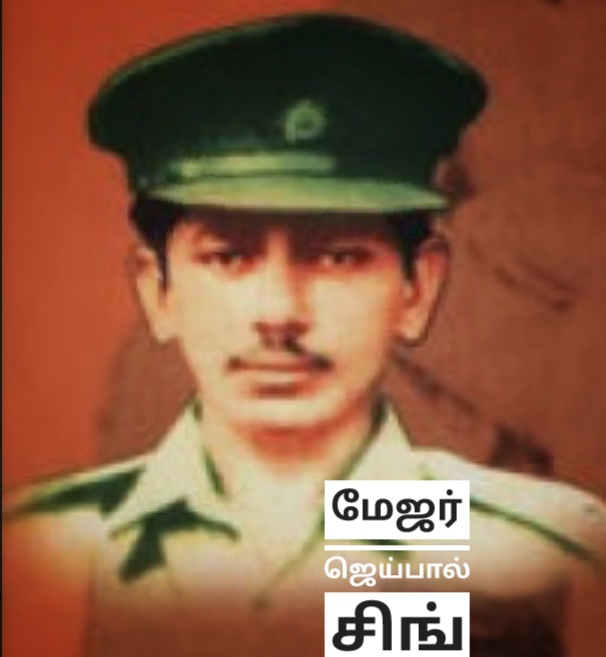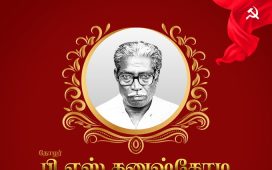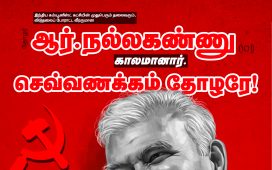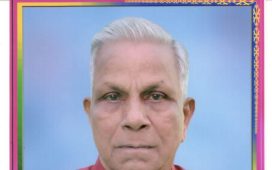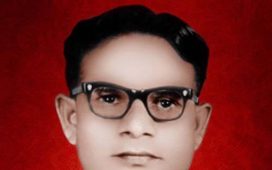
மேஜர் என அழைக்கப்படும் ஜெயபால் சிங் ஏழை விவசாயக் குடும்பத்தில் பிறந்து படித்து வெள்ளையனே வெளியேறு இயக்கத்தினால் ஈர்க்கப்பட்டவர். சுய கல்வியால் தனது பணிகளை மேம்பட செய்ய பழகினார்.
தலைமறைவு வாழக்கையும் சிறை வாழ்க்கையும் நிறைய பாடங்களைக் கற்றுத் தந்தன. தெலுங்கானா போராட்டத்தில் பங்கேற்க அனுப்பப்பட்டார். பின்னர் வேறு சில போராட்டங்களில் பங்கேற்கவும் அனுப்பப்பட்டார்.
கம்யூனிஸ்ட்டாக மாறிய ராணுவ மேஜர் ஜெயபால்சிங்….
இந்திய பிரிட்டிஷ் ராணுத்தில்
சிப்பாயாக சேர்ந்து மேஜராக உயர்ந்தவர். அங்கு இராணுவ வீரர்களுக்கு இரகசிய சங்கம் அமைத்து, இந்திய வீரர்களை பிரிட்டிஷாருக்கு எதிராகவும், இந்திய விடுதலைப்போருக்கு ஆதரவாகவும் தூண்டியவர். இதனால், கைது செய்யப்பட்டு
செயல்பட சிறையில் அடைக்கப்பட்டவர்.
பின்னர் சிறையிலிருந்து தப்பி 1956 வரை தலைமறைவாக வாழ்ந்தவர்.
நேதாஜியின் இந்திய தேசிய
இராணுவத்துக்கு ஆதரவளித்தவர்.
1947-48 காலகட்டத்தில் நிஜாம் மன்னரை எதிர்த்த தெலுங்கான போராட்ட வீரர்களுக்கு ஆயுத பயிற்சி கொடுத்தவர்.
நமது புதுச்சேரிக்கு வந்து புதுச்சேரியின் சுதந்திரப் போராட்ட வீரர்களுக்கு தேவையான வழிகாட்டுதல்களையும் ஆயுதப் பயிற்சி அளித்தவர்.
இராணுவக்கோர்ட்டில் நீதிபதி, “ஒரு அதிகாரியான நீங்கள் எப்படி சட்டத்தை மீறித் தப்பிச் செல்லலாம்” என்று கேட்டபோது, “நாடு அழைத்தது. அதனால் போனேன்” என்று நெஞ்சை நிமிர்த்தி பதில் சொன்னவர்.
மார்க்சிய இயக்கத்தில் தன்னை இணைத்துக்கொண்டு, பின்னர் மார்க்சிஸ்ட் கட்சியின் மத்தியக்குழு உறுப்பினராகக் கடைசிநாள் வரை மக்களுக்காக உழைத்தவர்.. மேஜர் ஜெய்பால் சிங்.
அவருக்கு நமது வீர வணக்கம்.
Remembering Comrade Major: Centenary of a Revolutionary Soldier (June 15, 1916 – January 25, 1982)
Jaipal Singh, popularly known as ‘Major’ began his career as an officer in the British army, and eventually became one of the leaders of the CPI(M) through the process of struggle and scientific study. He had really learnt that human life was very precious, as Lenin had said, and one should not lose a single moment so that at the end of one’s life one feels content that it was used for the well-being and the service of human society.
He played a significant role in the army, organizing armed personnel in support of the Quit India movement, and subsequently exposing the British conspiracies against national leaders to suppress the Independence movement in 1946. He deserted the army to become an active revolutionary…. Due to the role he played in the service of the freedom struggle, if he had been caught by the alien British rulers before Independence, he would have faced summary court martial and would have been executed then and there…
He was posted at the end of 1946 to the Mohanbari Air Field in Assam with his air supply unit.. he had been cut off from his network, he had been exposed and his arrest was imminent. The immediate cause was the information he had received that there was a plan to attack Jawaharlal Nehru who was due to visit the North East Frontier Agency. A young Canadian informed Jaipal that it would be wise for Nehru to cancel his visit. A perturbed Jaipal sent a man by the next train with a letter to be posted to Nehru from Calcutta. It was an anonymous letter in which he requested Nehru to cancel his visit to NEFA. That very evening, Jaipal got a message from his organisation in Calcutta Air Headquarters: “BETRAYAL, YOU WOULD BE ARRESTED”…
He could have risen to the highest office in the army if he had continued his career in it. But he chose to be a soldier of the revolutionary army of the working class and dedicated his life to the cause of social revolution.
After Independence, he surrendered to the army authorities in Delhi. Instead of exonerating him, the rulers of independent India chose to imprison him in Fort William, Calcutta from where he escaped after one year.
His underground life is a saga of revolutionary activities. Some time he was found with the peasants of Kakdwip in their struggle against feudal oppression, another time he was training cadres in Assam who were carrying on an anti-feudal struggle, then he was with the ranks of Telangana partisans fighting an armed struggle, sharing their hard life, he could be found with the people of Pondicherry who were fighting against French colonial domination…His experience as an officer of the British army helped a lot in imparting military training to hundreds of cadres…
When the Communist Party of India split in 1964, Comrade Major joined the Communist Party of India (Marxist).
He won the support and admiration of many political leaders and workers who were not in the Communist Party because of his modesty and plain living. A tall man wearing the simple clothes of an ordinary peasant, Major Jaipal could be found everywhere where the people were engaged in struggle….
In 1973, when the party decided to set up Regional Committee comprising Delhi, Haryana and Western Uttar Pradesh, Major was made its Secretary. In the growth of the party in Delhi and surrounding areas, it is recognised even by our enemies that Major played a very important role. His activities were very closely watched by the Congress (I) rulers because they had all his records with them since the time he revolted against the British…Therefore, when the Emergency was imposed, that very night he was arrested under MISA and detained in Rohtak jail…
After the Emergency, and after his release from prison, he assumed the post of Secretary, Delhi State Committee and continued to work in that position till his death. He was elected to the highest body, the Central Committee of the CPI(M) at the 10th Congress of the party held in Jalandhar.
It was in the month of January (1982) on the eve of the 11th Congress of the party in Vijaywada, when delegates had started pouring in, that Comrade Major had a severe heart attack. After two days, he passed away. At that time, his beloved wife Usha, two sons and daughter-in-law, along with party leaders P Sundarayya, EMS Namboodiripad, HS Surjeet, Samar Mukherjee were at his bedside…. The love and affection shown to him by thousands participating in his funeral procession revealed the depth of the feelings comrades and the people of Andhra Pradesh had for him. The huge condolence meeting in the ground of Vithalbhai Patel House in Delhi addressed by leaders of all political parties showed the great respect which he had acquired among wider circles of people due to his simple living, dedication and sacrifices….
(Edited excerpts from ‘Major Jaipal Singh: Tribute to a Revolutionary’ by Harkishen Singh Surjeet)
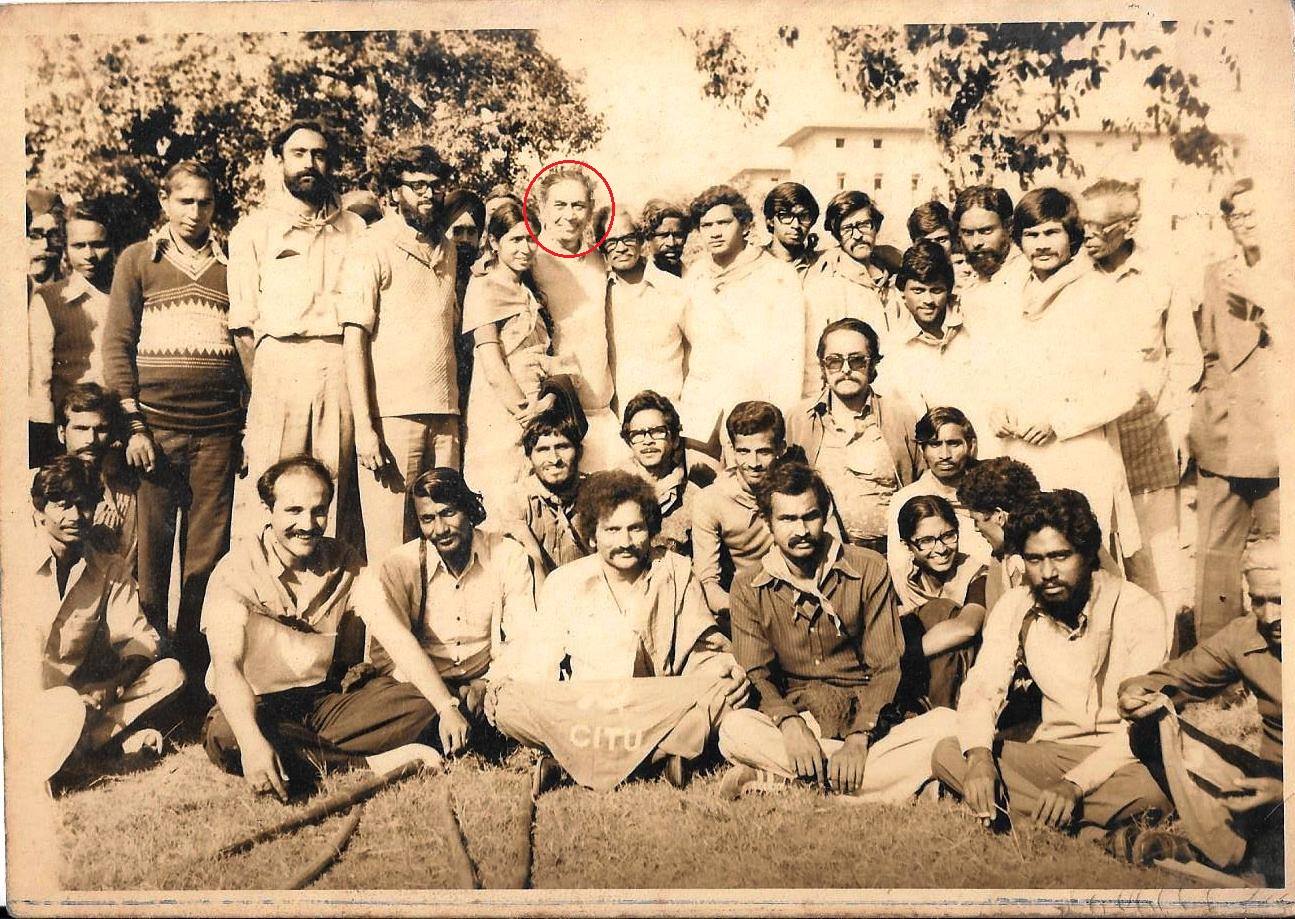
Photo:

